|
Missionaries around the world were excited on October 22, 2017 when Pope Francis called for an Extraordinary Missionary Month in October 2019. The fruit of that month lacks luster, but the seeds are heavy with promise. Some of us were grieved by the lack of attention given to mission, hoping that the Church would give it more time and energy. Mission always leads to a personal relationship with Jesus Christ. The beauty and power of mission is so often seen in the lives of the saints. Missionaries themselves know they need to expand and deepen their own human, spiritual, intellectual and pastoral formation in order to address the hopes and dreams, the griefs and anxieties of every human being. We hoped the people of God would be generous with their spiritual and financial support of mission. Considerable efforts were made by Mission Directors from around the country to lift-up mission within the local church. There were some wonderful celebrations – remembering the missionary roots of the diocese, sharing the missionary story, promoting all the ways the faithful are engaged in mission. Regrettably, we are not always aware of how our faith stems from the faithful, and often heroic, efforts of missionaries who witness the Gospel in our hometown. Some learned new things about mission they did not know before, particularly the lives of saints who embodied the missionary spirit. Perhaps the story of Sr. Dorothy Stang, S.N.D de Namur, who taught catechism and justice to the indigenous people of the Amazon, and the stories of many others moved lay people to learn more about these missionaries and the importance of the Amazon for our common home. There were efforts to deepen and expand the formation of missionaries – a few conferences, some webinars. USCMA focused on reconciliation as an aspect of mission and explored the missionary task of reconciliation among those who suffer from racism in America and the spirituality needed to sustain the mission and ministry of reconciliation. Roger Schroeder defines mission as “proclaiming, serving, and witnessing to God’s reign of love, salvation and justice.” Sometimes “evangelization” replaces the word mission. Too often, evangelization is understood in very narrow terms – as the verbal proclamation of the Gospel. As Catholics, we know in our bones that words – even very good words expertly crafted and amazingly articulated – are insufficient. Words need integrity that flows from lives lived in service to others purely out of the love of God. As St. Francis is often quoted as saying, “preach always and, if necessary, use words.” Mission is evangelization embodied. Pope Francis said in Joy of the Gospel, “I am a mission.” Mission is rooted in the very heart of God. Anthony Gittins, a leading missiologist, said “Mission is God’s job description, it is what he does and who he is.” Jesus is the preeminent missionary. He was sent by the Father to bring love, salvation, and justice to the world. Jesus continues this mission – everyday – through those of us who are baptized and sent into the world. The missionary goes beyond themselves, steps outside their comfort zone, crosses some type of border, and risks a personal encounter with another human being in the name of God’s inexhaustible love. There are wonderful signs of hope that the people of God are beginning to move from maintenance to mission. Parishes around the country are creating partnerships to build bridges and relationships of solidarity with people in other cities, states, and countries. Dioceses are forming partnerships with other dioceses. Catholic high school students are cultivating relationships with other students around the world through video technology and social media. Bishop Barron, at the recent gathering of the US Bishops, stressed the need for the church to reach out to the growing number of the “disaffiliated;” people who do not affiliate with any religion. Two of his three points speak directly to mission – engage people in the work of justice and create parishes to be “missionary societies.” What if every parish had a mission commission or team that would organize the missionary activities of the parish? Some parishes have a neighborhood mission to the homeless, regular mission trips to the poor in Appalachia, or a long-standing partnership with a parish in another country. Not all parishes can be completely dedicated to mission, but every parish can, in some way, be a missionary society. All are called to be missionary disciples, but not all can be missionaries. A missionary is a ministry of the Church – just like a catechist. Most of us have had some type of missionary experience where we reached out beyond ourselves, for the good of another, with only their good, their blessing, as our goal. All of us can come together, share our missionary experiences, and discern where Jesus is sending us. We are the seeds of the Extraordinary Month of Mission. We who heard Jesus say to us personally, “The Father has sent me, now I send you.”
0 Comments
It is fitting that as I write this blog in anticipation for National Vocation Awareness Week, the liturgical calendar has us moving through Paul’s letter to the Romans. In this letter, we find Paul emphasizing that we are now entering into a ‘new exodus.’ Just as Israel was liberated from Egyptian slavery, we are now liberated from the slavery of sin. The sacraments of Baptism and the Eucharist are the means by which Catholic Christian believers are joined to the new Exodus. Baptism is prefigured by the Israelites’ passage through the Red Sea, and the Eucharist is prefigured by the manna and the water from the rock in the desert. As we know well, the story does not end at our baptism. Rather, it is there that the story begins. Israel, having escaped from Egyptian slavery, quickly discovered that serving the Lord was even more demanding on the will than serving Pharaoh. In order to reach the Promised Land, the people of Israel had to take a path through a wilderness of trials and temptations. This path required a valiant conquest of all the obstacles of sin that stood in their way. In fact, the difficulty of the journey had some yearning for the days when they were slaves in Egypt. As children of the ‘new exodus’, our vocation in life is to travel through the wilderness of human life. Our exodus differs from the old in some ways, though. Our proclamation of the freedom found in Christ occurs while we travel. Our baptismal vocation calls us to ongoing sanctification, but it also calls us to witness this great exodus from sin and the new freedom in and won by Jesus Christ. We often desire the commitment to this ‘new exodus’ after seeing the commitment of others. This is a point that Fr. Luigi Giussani makes in his book titled, Is it Possible to Live this Way?. Fr. Giussani stresses the necessity of faith by which one encounters Christ indirectly through the witness of another. This witness tugs at our hearts to the point where we have no choice but to respond. Witnesses are therefore crucial to our discovery of this vocation - a vocation to partake in the new exodus. In my own life, my first example of such witnesses began with my parents. They not only gave me life, but they witnessed the faith by making the home a domestic church. Their marriage provided a template for me in my own vocation. They helped me see that the expression of freedom from the tyranny of selfishness comes through a spousal love. This spousal love is not exclusively expressed through the sacrament of matrimony, but it is also expressed through the sacrament of holy orders. As a diocesan priest, my local church in Harrisburg, particularly St. Francis Xavier in Gettysburg, is in a sense my spouse. I could not have such an understanding were it not for the witness of my parents. In addition, every seminarian and newly ordained priest can think of at least one other priest who first witnessed the presence of Christ to them through their own ministerial priesthood. In my case, I watched and learned first from my childhood pastor in New Hampshire, Fr. Marc Montminy. He was, and continues to be, a witness of Jesus Christ and a faithful spouse of the Church. Other priests who have taken on a similar role in my life are Fr. Frank Donio, S.A.C. (the Director of the Catholic Apostolate Center), priests of the Diocese of Harrisburg, faculty priests at Mount St. Mary’s Seminary, and priests elsewhere. As a priest, I seek (despite shortcomings and failures) to always be attentive to this desire - a desire to reach the promised land of eternal life through this new exodus. This is only possible because I have encountered people who not only accompanied me in discovering this desire, but who also witnessed it. This is, in essence, what it means to be a ‘humana viator’ (a wayfaring pilgrim). This is what it means to be an apostle. This is what it means to imitate Jesus Christ, the apostle of the Father. This is what it means to fulfill our baptismal vocation. During this National Vocation Awareness Week, may we be more attentive to this desire. May we recommit ourselves to this new exodus, which we have already begun through our baptism. May we also maintain and express our gratitude for those who have (and continue to) accompany us as witnesses. For more resources on Accompaniment, please click here. For more resources on Vocational Discernment, please click here. Our lives are unmistakably touched by the actions and values of our personal heroes. Many of us looked upon our parents as our first heroes, later adding to their exalted ranks the likes of athletic legends, first responders, teachers, coaches, and others whose passion and commitment went above and beyond in order to make a difference. Even today, heroes walk among us in their duties to God, country, and community: many have answered the call to serve in the armed forces, some are called to religious ministry, and others seek to defend and uphold life through witnessing to life and serving on the margins of society. Many live their lives simply, with no fame or fanfare, as they faithfully seek to better their own little corner of the world and love their families, neighbors, and friends. As Catholics, we have no limit to the heroes to whom we can lift our aspirations (and intercessions!); they are the countless saints of the Kingdom of God and Church Triumphant who, even now, urge us to live more fully for Christ. They are incredible examples that bring others into an encounter with the living God through their lives. All are called to be saints. As Mother Angelica always urged her EWTN viewers, “Don’t miss the opportunity!” Mother Angelica is one of my favorite heroes: her wisdom and insight, coupled with her iconic sense of humor, was so easily accessible on TV and the internet. When she looked into the camera, she was looking at me, speaking to me, urging me to be a better Christian. Sainthood is not just the attainment of spiritual perfection; what is heroic is recognizing and repenting of one’s spiritual shortcomings, returning to the merciful embrace of the Lord, and committing to be a better witness to Christ. Mother Angelica would similarly observe, “Faith is what gets you started. Hope is what keeps you going. Love is what brings you to the end.” Never let personal difficulty or worrying that it’s too much for you to handle scare you from addressing your hunger and desire for holiness. The saints came from all walks of life, meaning that each of us can fully answer the universal call to holiness no matter the circumstances. The demands of the spiritual life require a uniquely formed system of accountability, determination, and humility. While God is forever patient with us, we may become frustrated at ourselves or compare ourselves to our peers. That is why we can turn to the saints as guides and intercessors; they can shape our unique circumstances in life to better identify ways of living out our Christian witness in the world. With all the turmoil of the world, how critical it is for us to live boldly and authentically as Christians! And if we are viewed and treated suspiciously by observers, may we patiently embrace all that for the glory of God! How heroic are the martyrs of Holy Mother Church who “rejoiced that they were considered worthy to suffer dishonor for the sake of the Name [of Christ].” Especially when the negativity of the news tempts many to lose hope in the apparent darkness of the times, how necessary, then, it is for us to bring the brilliant Light of Christ and His Gospel message to expel the darkness and bring peace to those awaiting salvation. May the saints of heaven always remain sources of heroic inspiration throughout our lives, and may we be found worthy to one day join them in the eternal feast of the Kingdom of God! Today is the celebration of the Feast of St. Januarius, lovingly known in Italy as St. Gennaro. Januarius was an Italian bishop and martyr who died around the year 305. Not much is known about him other than what has been passed down in tradition, which tells us that the bishop of Benevento died under the Christian persecution of Diocletian along with six companions. After being thrown to wild beasts, who did not attack them, the Christians were beheaded. The accounts and lives of the martyrs always serve to build up the Church. As Tertullian’s saying famously states, "the blood of the martyrs is the seed of the Church." We recall the accounts of martyrs throughout the ages such as Felicity and Perpetua, Joan of Arc, Thomas More, Maximilian Kolbe, Blessed Miguel Pro, Blessed Richard Henkes, S.A.C., and most of the Apostles themselves. How diverse and rich is the witness of the martyrs and saints! In each generation, the martyrs demonstrate heroic faith in a culture of opposition that culminated in the sacrifice of their very lives. In the case of St. Januarius, his witness continues in a special way today as a result of his relics. Not only is his witness of martyrdom powerful, so is the miracle associated with his blood. After Janurius’ beheading, a woman named Eusebia collected the bishop’s blood in a vial. This was brought to Naples and has been venerated for centuries. Most extraordinarily, for the past recorded 400 years starting in 1389, the dried vial of Januarius’ blood liquefies typically on three dates a year: “in the spring during celebrations of the feast of the transfer of the saint’s relics to Naples; Sept. 19, his feast day; and Dec. 16, the local feast commemorating the averting of a threatened eruption of Mount Vesuvius through the intervention of the saint.” Most recently, his blood half-liquefied on a date outside of the normal dates with a visit from Pope Francis in March of 2015. In his typical humble fashion, Pope Francis responded to the applause from the crowd saying, “The bishop said the blood is half liquefied. It means the saint loves us halfway; we must all convert a bit more, so that he would love us more.” Through his words, Pope Francis reminds us that the purpose of miracles is to draw us closer to Christ and to increase our faith. Jesus performed miracles not for spectacle, but for healing and conversion. The miracles of holy men and women continue to this day and serve the same purpose: to inspire profound faith in the ongoing work of God that causes us to strengthen our love of Him in word, action, and service. May they inspire our own faith and lead us closer to the One who modelled perfect martyrdom in charity—Jesus Christ—whose martyrdom we commemorate at every celebration of the Eucharist. Nourished by his Body and Blood, may we emerge from our parishes strengthened to answer persecution with love, hatred with forgiveness, apathy with zeal, ignorance with truth, and selfishness with compassion. In doing so, we will be everyday martyrs—literally, witnesses—proclaiming the Gospel with our lives. St. Januarius, pray for us. Throughout my studies at The Catholic University of America, I had the opportunity to witness and participate in the sacred traditions and rites of various religious orders I would never have encountered back at home. A great blessing of my place of study was the constant flux of various clergy, seminarians, and religious throughout campus who were undertaking a degree program or simply passing through campus in their respective ministries. God bless the Franciscans, Little Sisters of the Poor, Marians, Sisters of Life, Sisters Servants of Mary Immaculate, Pallottines, and the Missionaries of Charity, to name a few, who joyfully lived out their vocations—inspiring observers to get to know them and their spiritualties and facilitating an encounter with the Lord.
In God’s providence, I frequently found myself at the Dominican House of Studies at the far side of campus and was able to join the community of brothers and priests in their night prayers and certain liturgical celebrations which were open to the public. Personally, I found the house to be a commanding presence and a bit daunting on the inside: the intellectual prowess of the Order of Preachers and its faithful carrying out of its mandate to preach conveyed a certain spiritual seriousness which drew me in all the more. How striking were the resonating, unified, and almost haunting tones of the sacred chants of prayer, together with the corresponding gestures and postures and the dimmed lights! And yet, in wonderful moments of levity, the very same Dominicans could be found performing excellent bluegrass music as “The Hillbilly Thomists”! Before Dominic’s mother conceived him, she dreamt a dog leapt from her womb and set the world on fire. Dominic went on to become a priest and ultimately founded the Order of Preachers—the Dominicans. The Dominicans rose to the forefront of the intellectual life of the Middle Ages as they announced the Gospel, combatted heresy, gave quality spiritual and scholastic instructions, and contributed unmatched gifts to schools of theology and philosophy. They are lovingly nicknamed “the hounds of the Lord.” The Order has raised up many saints and conferees who ministered to every corner of the world, advocating for the rights of Native Americans, standardizing the liturgy of the Mass, compiling the Church’s canonical laws, composing timeless sacred hymns, caring for the poor, advancing the correlation of faith and science, and promoting the holy Rosary. Western civilization owes a debt of gratitude for the contributions of Dominicans such as Saints Thomas Aquinas, Albert the Great, Pope Pius V, Catherine of Siena, Rose of Lima, Louis de Montfort, and Martin de Porres. Participating from time to time in the life of that religious community gave me a lovely insight into the incredible mysticism of the Order and of the Church Universal. Such a powerful instrument of personal and theological devotion is not the closely held property of one religious order or vocation, but a gift available to anyone who seeks to enhance their personal spirituality with deeply historic and touching methods. This involves realizing the soul as something more sacred than just consciousness; the soul is able to love which helps to better relate to God, who is Love incarnate, emotionally and ecstatically rather than merely intellectually. And you don’t need the philosophical and theological background of a Dominican to similarly enhance your own prayer life! You can begin by quietly placing yourself in the holy presence of God and focusing on the love He offers and the ways He is being loved (or not) in return. Going deeper, it could be beneficial to read the thoughts and reflections of various Dominican saints who embraced a similar spirituality. How good God is to have called upon Saint Dominic hundreds of years ago to begin such an incredible religious order committed to promoting Truth and the mandate to praise, to bless, and to preach (In fact, that is one motto of the Order!).The work of the Dominicans is especially needed today in our society of moral relativism and secularism. Let us pray that many more answer God’s ongoing call for holy religious and priestly vocations. And may we, as lay people, continuously support the Church which offers so many varied spiritual treasures for our sanctification. At the very start of my sophomore year, I accepted an internship with the Catholic Apostolate Center. When I was first offered the position, I had no idea how it would benefit me, what the long-term goal would be, and how it would affect my own academic studies. My first project involved the creation of videos that correlated to feast days in the Church. After 7 months, this project resulted in the creation of about 200 videos, which reached an average audience of about 2,000 people. Reflecting on this effort, it dawned on me that these videos aided me in learning more about the history of the Church, deepened my faith journey, and acted as a catalyst for my own maturation as a Catholic. The creation of the feast day videos introduced me to a whole assortment of saints and martyrs of whom I had never heard. As I continued creating each of these videos, I learned more about the history and struggles of the Church throughout its existence. Although I previously knew some facts about the early Church, my knowledge now incorporates more about the saints that have lived and died for their faith throughout the Church’s history. Seeing the conflicts between Saint Stanislaus and King Boleslaw, the relationship of Saint Boniface to tree worshiping people in his time, or learning about the martyrdom of Blessed Stanley Rother in Guatemala have all made me aware of the great sacrifices and battles the saints have waged and has deepened my own faith as a result. I was also able to observe a common theme in the saint videos, regardless of which saint the video was focused on. As I worked on these videos, I saw time and again saints offering sacrifices for the poor or the marginalized. Learning more about people like Saint Vincent Pallotti (the Center’s patron), who died because he gave away his cloak to a cold man while saying confessions, or about Blessed Miguel Agustin Pro, a Jesuit priest who was shot during a period in Mexico when the government was antagonistic towards the Catholic Church, made a profound impression on me. I not only wanted to learn more about these great saints and witnesses, but also wanted to align my life with theirs. As a result of my work on each of these saint’s videos, I started to take my faith more seriously, prayed for the saint’s intercession daily, and decided to model them in my own life. As a result, I have experienced greater growth as a Catholic. Even though my faith journey is still in its adolescent stage, making the saint videos has led me to begin a period of spiritual maturation. While producing the saint videos was one small component in enacting this growth, learning more about the history of the Church and the lives of the saints helped propel my yearning to become a more serious Catholic. These saints inspire me to holiness by emulating their lives. I am grateful for my internship with the Catholic Apostolate Center and am just beginning to realize the impact this role has had on my life and faith.
“The Advocate, the Holy Spirit…will teach you everything.” -John 14:26 After two years of dedicated study of theology, I received my Master’s degree. This has always seemed a bit odd to me, because I often feel I still have so much to learn. This seems like the case for Jesus’ followers as well. After 3 years of discipleship, they didn’t know “everything.” Though they could be considered the “masters” of Christian life–having spent three years walking alongside Jesus—Christ tells them they still need the Holy Spirit in order to learn “everything.” He was explaining to them a fundamental reality of the Christian life: it is a life-long process of learning. This reality is sometimes daunting, but more often it is comforting. The men that spent three years at the feet of Christ, who witnessed His miracles, heard His parables, and encountered Him after His resurrection, didn’t have it all together. They were not perfect at discipleship and they still needed God, who would now be revealed to them in the indwelling of the Holy Spirit. Rather than spending physical time with Christ, they would experience something even greater: God dwelling within them. This intimate and powerful presence of God is something we can experience today. We receive the indwelling presence of the Holy Spirit on the day of our baptism and physically receive Christ Himself every time we partake of the Eucharist. Furthermore, Christ tells us in this Sunday’s Gospel that He and the Father will dwell within those who keep His word. This comforts me because I have never heard Christ’s voice, seen His face, or shared His food. Though I am generations and millennia removed from Him, He has sent the Holy Spirit to teach me “everything”—what it means to follow Christ and live the Gospel today. Much like the disciples, I still have much to learn. Though I have grown up knowing about Christ and His teachings, though I have figuratively sat at His feet for more than three years, I still need the Holy Spirit to teach and remind me what it means to be a follower of Christ each day. And in order to cultivate the indwelling of the Holy Spirit, I must continue to keep Christ’s word. This is so much more than the study of theology. As Pope Francis said in a 2015 homily, "We can study the whole history of salvation, we can study the whole of Theology, but without the Spirit we cannot understand. It is the Spirit that makes us realize the truth or – in the words of Our Lord – it is the Spirit that makes us know the voice of Jesus." Learning everything, therefore, means knowing and discerning the voice of Jesus. A life of keeping Christ’s word looks different according to your vocation or status in life, but overall, some things that help us recognize Christ’s voice include an active sacramental life, daily prayer, acts of charity, reading Scripture, and living according to Church teaching. In the nitty gritty of every day, this could mean keeping your cool while driving in rush hour traffic, taking a meal to a family with a newborn, participating in the Sacrament of Reconciliation regularly, giving your spouse the benefit of the doubt, going to Mass each Sunday, or taking a deep breath when your child throws his food on the ground for the third time that day. It could mean reading the daily readings at the breakfast table, praying evening prayer with your roommates, starting a rosary on your commute, participating in a weekly Bible study. In short, keeping Christ’s word is a lifelong, daily decision to do things that bring you closer to Him and encourage you to hear His voice. As we prepare to celebrate Pentecost in a few weeks, let us call upon the Holy Spirit to be our Advocate and Teacher. May we have the humility to call upon Him daily as we pursue this lifelong life of discipleship in order to truly hear the voice of Jesus that says, “Come, follow me.” I can recall from a very young age pondering what it means to be Catholic. We were supposed to somehow be different from secular society by the way we lived our lives, but how or why was that any different than simply being a good, kind, and moral human being? Can “normal” domestic life be holy? Why is the domestic church—the Christian family—so vitally important to our faith? Throughout my life, this question has been answered in various ways and degrees. However, nothing has been so powerful as what I have witnessed in the past few months. In the late fall of last year, my mother-in-law underwent unexpected surgery and was unable to attend Mass. During our family’s Thanksgiving visits, I witnessed an incredible moment of our faith: my mother was able to distribute the Sacred Body of our Lord to my mother-in-law. Tears fell from my mother-in-law’s eyes as my husband, father, mother, and I encircled her, reciting prayers together in preparation for the distribution of the Eucharist. I was struck by the immensity of this moment: as I witnessed the woman who gave me life distribute the source of eternal life to the woman who gave my husband life, the depth and vital importance of the domestic church began to come into clearer focus for me. The Christmas season would bring me another unexpected intersection of family and faith and another reminder of the significance of the domestic church. My father was hospitalized between Christmas and New Year’s; I found myself once again in the midst of a family circle of prayer as this time I witnessed my sister ministering the Sacred Body of our Lord to both my father and mother. My husband, nieces, nephew, brother-in-law, and I encircled my father’s hospital bed. Again, I found myself struck by the immensity of the moment unraveling before me; there is something very profound in witnessing the physical, tangible presence of Christ enter into vulnerable family space. I held these moments in my heart and in my mind, reflecting on them as the days rolled by between the holidays and the beginning of Lent. This year, our parish announced that they are encouraging families to consecrate themselves to the Holy Family. Ah, the Holy Family, the perfect model of the domestic church! It is within the context of the family that we learn about our faith and see examples of faith lived out. Christ Himself was born into a family; it was a vital part of his plan of salvation. We are each called to sainthood and each of our paths to sainthood will look a bit different. Lent is a beautiful time to really evaluate how close we are to following that path and what we can do in our lives to stay the course. No matter what path our calling leads us on, all paths lead back to the family—whether that be our own family by blood or our brothers and sisters in the faith. How do we live out each day as a domestic church and bring that holy reverence to our everyday lives? We are called not only to love one another but to LIVE for one another. I witnessed this profoundly over the holidays when I saw different members of my family live for and serve one another. But there are also opportunities being presented throughout our everyday life to grow in holiness and spiritual maturity—especially now during this Lenten season. Lent is not only a time to deny ourselves of those things that keep us from our path to sainthood but also a time to invite the Holy Spirit to open our eyes and hearts to opportunities of everyday holiness and saintly domesticity. Christ wants to be a living presence in our homes and in our families, but we have to open the door for Him and invite Him in. I saw the effects of Christ’s presence in my family in those moments when He was brought physically to my parents and mother-in-law. Christ brings unity, service, strength, love. Just as in our physical lives we can manage the stresses and craziness of ever day life better when we fuel our body with proper nutrition and exercise, so too are we called to fuel our spirits and our family bonds with the Bread of the angels and on every word that comes forth from the mouth of God. What spiritual exercises can we work through together as a family this Lenten season? How can we work to call one another to a life of saintly domesticity? For more resources to accompany you throughout your Lenten journey, please click here. To learn more about Marriage and Family, please click here. Lent is fast approaching. Ash Wednesday will arrive with the usual crowds to mark its beginning. Even though it is not a holy day of obligation, many Catholics feel the need to participate in a Mass or service and have ashes imparted upon them. Several of the same, even if they do not go to Mass on a regular basis, will take up the various Lenten disciplines of prayer, fasting, and almsgiving, but particularly fasting in the form of “giving up” something. It is important to consider that there is something stirring spiritually within these brothers and sisters. Those who are very active in the life of faith can either dismiss them or accompany them into deeper life in Christ, in and through his Church. How? By using well the tools of Lent – prayer, fasting, and almsgiving – as ways in which we can witness Christ more authentically to our brothers and sisters and deepen our encounter with him. In his Lenten message last year, Pope Francis made this invitation once again, “Above all, I urge the members of the Church to take up the Lenten journey with enthusiasm, sustained by almsgiving, fasting and prayer. If, at times, the flame of charity seems to die in our own hearts, know that this is never the case in the heart of God! He constantly gives us a chance to begin loving anew.” (2018 Lenten Message) The “enthusiasm” that comes from prayer, fasting, and almsgiving, is not of our own making. It is the work of God and one in which we cooperate. The disciplines of Lent are not ends in themselves. They are means to an end, greater communion with Jesus Christ. We are challenged by these practices to focus our attention not on ourselves, but more fully on God and neighbor. A focus on our neighbor returns us to those who are spiritually searching and arrive on Ash Wednesday or “give something up” for Lent. It means less attention on ourselves and more prayer for them, uniting our fasting with and for them, and giving of our time to them, especially to listen and accompany them back into living more deeply the life of faith. Not an easy task, but a sacrifice that, if lived well and authentically, could assist others in coming to Easter joy! May the Charity of Christ urge us on! For resources to accompany you throughout the Lenten season, please click here. Just down the street from where I study and serve in my home Archdiocese of Baltimore is our nation’s first Catholic cathedral, the Basilica of the Assumption, a visible testimony to the faith of the first Catholics in the newly formed United States of America. Yet every time I visit that holy place, I’m reminded by the physical space that for many years worship was segregated and black Catholics were required to sit in the balcony. Our family of faith in Baltimore included heroic individuals and communities like that of Mother Mary Lange (1794-1882), founder of the first African-American religious order, the Oblate Sisters of Providence, and the ministry of the Josephites. Their creative witness and ongoing presence in our communities today serve as a constant reminder that their mission lives on and has work yet to do. Since 1990, the Church in the United States, through the work of the National Black Catholic Clergy Caucus (NBCCC), has designated November as Black Catholic History Month. In a special way, the testimony of black Catholics reminds us all that as disciples of Christ, we live by memory. Celebrating this month reminds the Church just what it is that we are responsible for remembering. The act of remembering is a moral and spiritual task, part of the Church’s call to combat the sin of racism and seek new forms of reconciliation with sins of the past. Additionally, I’d like to suggest that memory lies at the heart of the Church’s celebration of word and sacrament, and briefly reflect here on why remembering our Church’s black history is so important for faithfully celebrating God’s word and sacrament each and every day. Those who attend or have attended a parish with a strong black Catholic presence will often recognize the power of the proclamation and preaching of God’s word. In particular, this tradition of preaching reminds Catholics that our Church preaches and teaches a truly liberatory word. Jesus Christ came to deliver God’s people from all forms of bondage and oppression, restoring us to freedom. Our biblical faith makes clear that participation in the Exodus event is intrinsically connected with our participation in the Passover. As Catholics, this means we are fed by God’s word and sacrament, particularly the Eucharist. At the Institution of the Eucharist at his Last Supper, Jesus instructed his Apostles to “Do this in memory of me” (Lk 22:19). The sacrifice of the Mass is an act of remembrance, called anamnesis, that re-presents Christ, making Jesus truly present here and now in the species of bread and wine. (I invite you to read Father Raniero Cantalamessa’s reflection.) That act of remembering is the basis for our act of thanksgiving (literally, “eucharist”). But it is impossible for us to give thanks for what we cannot remember. Does Christ’s presence at the altar then lead us onward to become more aware of Christ’s presence in our brothers and sisters who remain subject to forms of injustice and oppression elsewhere? To this end, our bishops offer resources on how to respond to sins of racism, an important way to publicly live out the interior transformation we receive in the Eucharist. While we live by memory, we do not simply live in the past; we are called to faithfully live out of our past. We live by memory as a sign of our hope that since God gave us a past, he promises us a future. Black Catholic History Month serves as a reminder that we have a history worth remembering and celebrating, so that we may go on living in the freedom to which Christ daily calls us. For more resources, we invite you to visit our Cultural Diversity Resources page and scroll down to the section on African American/Black Catholics. Click here to read Open Wide Our Hearts: The Enduring Call to Love, a pastoral letter from the USCCB against racism Questions for Reflection: How does remembering the past help us to live more faithfully and hopefully in the future? How have you seen our Church benefit from the diversity of its members? *This post was originally published on the Ad Infinitum Blog on November 2, 2017 For more information about Black Catholics in the US, check out the resources created by the National Black Catholic Congress in collaboration with the Catholic Apostolate Center: The back to school activities of September are a familiar routine for many families. Classes, assignments, extracurriculars and other events resume. Students begin their routines, and hopefully can rely on the enthusiastic support and encouragement of family and friends. Even in times of difficulty and trial, the reassurance and faith of others can help us find a way forward through uncertainty and strengthen us.
I see some parallels for this time in our Church. As the American Church goes through difficulty and trial, I have seen the importance of the involvement of the laity in each parish community. My observations of my parish community have been a great witness to the vitality of the church. Each week, I see families arrive to pray together and those who are involved in whatever ministries or needs the church advertises. Their worship of our Lord is not confined to Sunday Mass but is further expressed in the faithful service and loving charity of neighbors. The organizational structure of the parish furthermore allows the laity to find worthwhile opportunities of ministry. Numerous devotions are promulgated each month. Social calls to action are announced weekly. Calls to assist with the liturgical and musical ministries or volunteer with catechetical programs are ongoing. Pilgrimages are organized. Going beyond any mere routine of spirituality, the parishioners regularly exemplify a living witness to the Gospel: “Whatever you did for one of these least brothers of mine, you did for me.” Even in the storm of ever-changing current events, the Church stands firm upon her foundation, able to weather the most intense battering. Just look to your own parish: the Eucharist will still be confected, Mass will be celebrated, the sacraments will be administered, and the needs of the church will be met through the generosity and charity of its parishioners. Those leading or participating in these activities may change, but the significance of the laity’s participation in the parish never diminishes. Likewise, the constancy of the Gospel message never fails to ring truly or relevantly. Especially when we as a Church are shaken, let us cling to the divine promise of hope: Christ has died, Christ is risen, Christ will come again! The Gospel account of the storm at sea gives me comfort, for even the closest disciples of Jesus had doubts and feared for their lives upon encountering a sudden storm. They accused Jesus of not caring about the present danger. Unfazed, however, Jesus proceeded to calm the winds and the sea. The faith of the disciples had been tested—even when Jesus was physically with them in the boat! When we find ourselves adrift and at the mercy of the tempestuous world or lost in a great darkness, we may feel powerless and cry, “Where is the Lord?” In those moments, withdraw to a place of calm and remember the sure promise He made at the closing of Matthew’s Gospel account: “Do not be afraid… I am with you always, until the end of the age.” Spend some time re-reading the storm narrative I mentioned above, or other passages from Scripture, like Psalm 23, that bring hope and consolation. How many times in Scripture— and beyond— did Christ bring healing and comfort, asking only for faith in return? Let us ask for the gift of faith during times of darkness and find comfort in the fact that Jesus blessed his disciples upon seeing them in the Upper Room even though they had abandoned Him. “Peace be with you,” he said. Others may also have doubts during this time. I invite you to be there for them just as Christ remains faithful to you. The Church endures. She has undergone and will continue to undergo all sorts of trials. Yet she is never alone: Christ remains to guard and unite the faithful in Him. Our faith can be bolstered when we continue to engage in the simple daily exercise of spirituality and charity—especially in our parishes. The faithful of the parish are inspiring witnesses as they continue to perform acts of charity, worship together, and care for their neighbors. We as a Church are called to holiness; with God’s help, may we rise to the occasion. This year, the theme for Catechetical Sunday (September 16th) is “Enlisting Witnesses for Jesus Christ.” This day is a reminder that all of the baptized play a role in the mission of sharing Christ with others, whether that be through formal or informal ministry. This mission seems pressing today. In Bishop Robert Barron’s 2018 message for Catechetical Sunday, he says we are losing baptized Catholics at an alarming rate. In a Pew Research report, we see that Americans who identify as atheists or agnostics make up about 23% of the U.S. adult population. This group of religiously unaffiliated individuals, or “nones,” is mostly concentrated among young adults, and the median age of unaffiliated adults continues to get younger. Of this population, those who describe themselves as agnostic or “nothing in particular” cite their top reason for not affiliating with a religion is that they question a lot of religious teachings. Having questions is actually an essential part of learning about and understanding the Catholic faith; only when we question can we begin to move beyond a lack of understanding and come to learn the truth of the Gospel. God desires for us to use our intelligence to come to know him before acting upon our faith. The majority of young adults and “nones” find value in meaningful relationships over institutionalism and in authenticity over authority (Halbach). This shows us that the Church can engage the “nones” by forming relationships in order to accompany them along the journey of life. In the mission to bring Christ to others, we serve as authentic witnesses to the Good News of the Gospel through our lives. The Church needs the active participation of the laity to conduct outreach efforts in the everyday moments of our lives, both inside and outside of the Church. We were created to be social beings who can form relationships with others that will lead them to Christ and to the Church. Much of this relationship building happens organically in our communities and parishes. For example, a couple of weeks ago, my parish young adult group heard that the grandmother of one of our new members had passed away. After hearing this news, we wrote and signed a sympathy card to mail her. By this small act of love for our fellow sister in Christ, we were able to show our genuine care for her and our desire to welcome her back to church after her travels for the funeral. As missionary disciples, we know that there is no one “right” path to building these relationships and caring about those around us. This allows us to share our innate gifts creatively with others in order to build authentic relationships. Furthermore, sharing our own faith stories of personal encounters with Christ helps us to accompany others on their faith journeys as well. We must show others that we love them through our actions rather than our words. Christ enlists us as his witnesses. This Catechetical Sunday, how can you respond to his call? Questions for Reflection: Are we open to questions about our Catholic faith in helping ourselves and others come to know God? Are we preparing ourselves to be able to answer questions from others about the faith in a rational manner? What are some ways you can begin to build authentic relationships with others in your community or parish? How are you building personal relationships with others in context of your faith journey? To learn more about living as missionary disciples, click here. “The Gospel of the Family: Joy for the World” is the theme that Pope Francis chose for the upcoming World Meeting of Families in Dublin, Ireland. One aspect that will be explored is how “the Christian family, by its witness to the life and love of Jesus, is a principal agent of evangelization to the world.” Catholic teaching calls the family, the “domestic church” (Lumen Gentium, 11) and parents are told in the Rite of Baptism that they are “the first teachers of their child in the ways of the faith.”
Others in the Church, clergy, those in consecrated life, and lay people, are supposed to be co-responsible with parents not only for teaching children and young people, but most especially, nurturing them, protecting them, and witnessing to them holiness of life. When this fails to happen whether in the past or in the present, as is once again showing itself in various parts of the world, then repentance, reform and renewal are not only needed, they are necessary. Repentance, reform, renewal, and greater holiness are not possible without co-responsibility among all the faithful in deeper conversion of life in Christ as our patron, St. Vincent Pallotti, envisioned over 183 years ago in Rome. We cannot do this on our own as Pope Francis reminded all in his apostolic exhortation, Gaudete et Exsultate: “Ultimately, the lack of a heartfelt and prayerful acknowledgment of our limitations prevents grace from working more effectively within us, for no room is left for bringing about the potential good that is part of a sincere and genuine journey of growth” (GE, 50). Since we are limited, we are challenged to do, with God’s grace, as St. Vincent Pallotti exhorts us to do: "We must begin to reform our lives by putting all our confidence in God." May the Charity of Christ urge us on! In Christ, Apostle of the Eternal Father, Fr. Frank Having experienced the Petrine ministry of Pope Francis for over five years now, it should be of no surprise that the Jesuit former Archbishop of Buenos Aires took the name Francis, the first time that name had been chosen in the 2000+ year history of the Catholic Church. The name was taken for St. Francis of Assisi, a 13th century saint who left behind a life of luxury and wealth to pursue a life lived according to the Gospel. One of the more famous stories tells of St. Francis’ public witness of faith when his own father brought him before the bishop on charges of theft. Francis famously stripped off his clothes and announced that "Pietro Bernardone is no longer my father. From now on I can say with complete freedom, 'Our Father who art in heaven.'" Much like St. Francis, Pope Francis has also stripped himself of luxurious garments, choosing to present himself in modest, humble clothing that is still fitting to the Papacy. Such action is not solely a living witness of the message of St. Francis, but also the message of Christ who said, “If you wish to be perfect, go, sell what you have and give to [the] poor, and you will have treasure in heaven. Then come, follow me.” In Jorge Bergoglio’s ministry as Archbishop of Buenos Aires, his commitment to simple living was made manifest through his actions. He was seen riding a bus with other bishops instead of using his designated private transportation; he cooked his own meals, and he even chose to live in a small apartment outside of the usual bishop’s residence. Pope Francis’ witness teaches us that a simple life does not mean a life lived passively. Simplicity requires action. One must live and act in a way that honors the life of simplicity and humility to which we are called by the Gospels. In living out the witness of St. Francis and the call of Christ, Pope Francis has also put a great influence on caring for the marginalized—whether migrants, the homeless, or any of those in need. Just recently, Pope Francis surprised Cardinal Konrad Krajewski and around 280 homeless persons at a Vatican dinner where he dined with them for over two hours and listened to their stories. On Holy Thursday 2017, Pope Francis washed the feet of twelve inmates at a prison about 45 miles from Rome, to honor Christ who reminded his apostles that “whoever wishes to be great among you shall be your servant.” That teaching is one that should resonate deeply with us. Simplicity does exactly that, it allows us to live in solidarity with those most in need and live lives conformed to Christ. The lives of Pope Francis and St. Francis of Assisi provide a witness to a life lived as Christ instructed. We’re not expected to exactly follow the path of St. Francis, as his life is a remarkable one, but, as Mother Teresa said, we can serve by performing small deeds done with great love. Let our Holy Father and St. Francis of Assisi continue to be examples to us in living out or vocations of holiness, and may we always pray for our Holy Father and his ministry. Questions for Reflection: What are some easy ways that I can live more simply? What luxuries is the Lord calling me to give up? “For even as the body is one and yet has many members, and all the members of the body, though they are many, are one body, so also is Christ.” (1 Corinthians 12:12)
Frequently in the bible, we read that we are all members of one body, making up the church in our world. We must work as one body, sharing as one large group, the church. Although I’ve heard and read this teaching several times, for most of my life I still saw the church as a building. Sadly, this imagery left me with gaps in my understanding which impacted my spiritual life. In Spanish, the word “compartir” means “to share.” One of the biggest impacts that mission and life in Bolivia has had on my spiritual life is the “compartir” culture. Not only do people share with their friends and the people they know well, but they share with everyone. I am currently serving as an overseas lay missioner at the Universidad Academica Campesina-Carmen Pampa (UAC). So far in my time here in Carmen Pampa, Bolivia, I have witnessed everyday acts of sharing. People don’t always have much, but they are always happy to share what they do have. On campus, students have shared their snacks with me. A student invited me to his home to share about Bolivian culture with me. Whenever students attend events and are asked why they chose to come, the resounding answer is simple: “compartir.” Their desire is to share. I learned a great lesson on what it means to share while on a recent trip to a local town with a group of students in Pastoral, the campus ministry group at the UAC. It was a day full of activities to get to know one another: we played games, shared in music, celebrated mass, and ate wonderful food. I had a great time and really got to know some of the students better. I was amazed by the way that everyone shared their time and energy, even when it would have been easier to let someone else take charge. Because I was so amazed by all of the sharing, I was caught off-guard by a conversation that occurred a few days later at our Pastoral group meeting. The group leader asked each person to share a reflection about the trip.The first student to speak shared that she thought the trip had been “mas o menos”, “more or less.” I was a bit confused. As we continued around the circle, many people voiced similar thoughts. I was shocked that the trip I thought was so beautiful had left others feeling disappointed. Then someone started to go deeper: the reason many people had felt a little discouraged was because during most of the trip, people had been in separate groups—one group working on the cooking, one group singing, one group playing soccer. We hadn’t truly been sharing as one. I thought back to what was the most powerful part of the trip to me, and I realized that it had been in mass. The church was small and made of cement. It had plain, cracked windows, and we sat in red plastic chairs. But during mass, we had all come together as one group to share in praise to God, to share in the word of God, and to share in the Eucharist. It had been so powerful because we were all there as one. I want you to close your eyes now and come up with an image of church. I’ll admit that every once in awhile, I’m still going to picture a building. This building may have the most pristine stained glass windows, with beautiful mahogany pews, and a perfectly polished tabernacle. But no matter how beautiful the building may be, this image still leaves gaps. Because no matter how many people are packed in that church, there are still hollow spaces when it is just a building. Like Jesus taught us, we are the church. As the church, it is our mission to act as the body of Christ here on earth. The truth is that we aren’t truly acting as the hands and feet of Christ until we use those limbs to reach out and share. And reaching out isn’t a task we were made to do on our own. Christ’s body was made to work as one unit. When we spread the gift of sharing as one people, we begin to fill voids. The desire of my students to share and to work together as one community and one body has been such a powerful experience. I am still learning what it means to truly “compartir” each and every day. I’m learning how to see myself as a part of a larger, complete body. In embracing this life of sharing, I have found myself more deeply appreciating my time with others, as a part of God’s church, and so becoming closer to Him and to His people. To learn more about service opportunities through Franciscan Mission Service, please click here. Editor's note: This blog was originally published through the Catholic Volunteer Network in May 2018. It has been reposted with permission. Magdalene Van Roekel is a volunteer with Franciscan Mission Service |
Details
Archives
April 2024
Categories
All
|
About |
Media |
© COPYRIGHT 2024 | ALL RIGHTS RESERVED

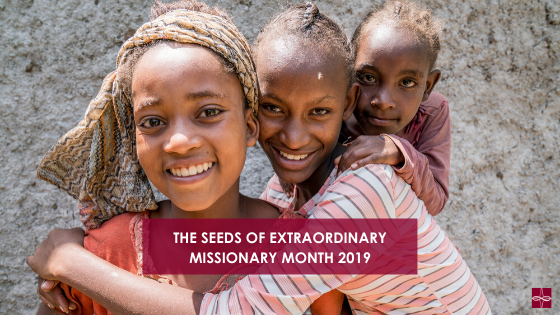

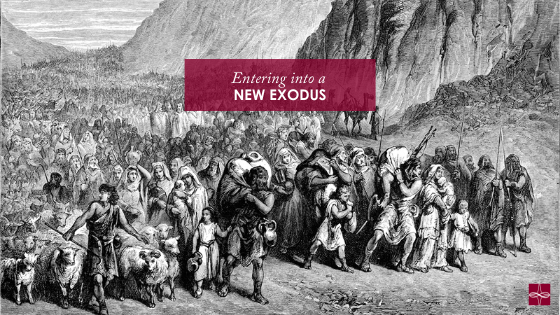

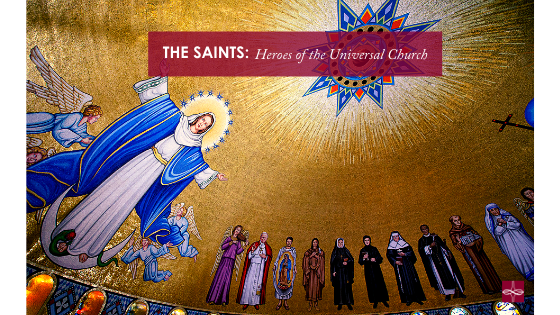

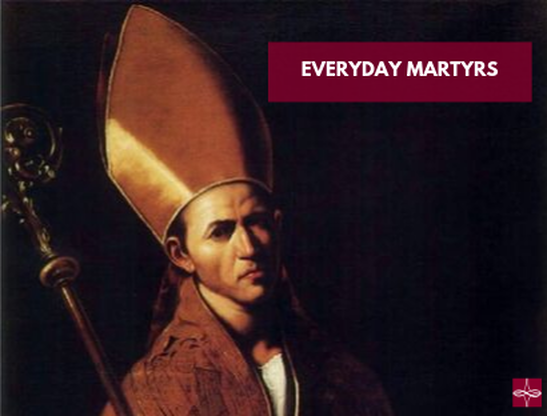

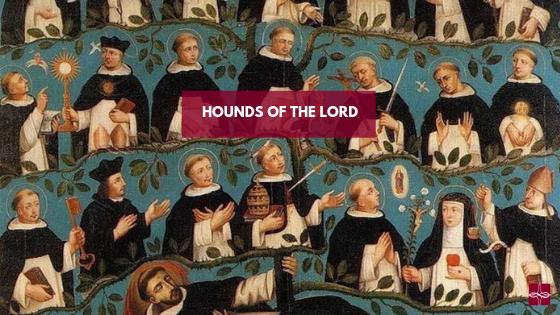

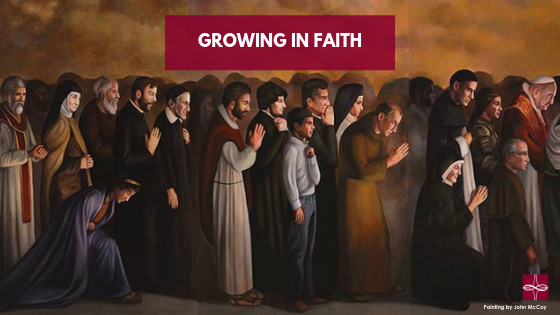





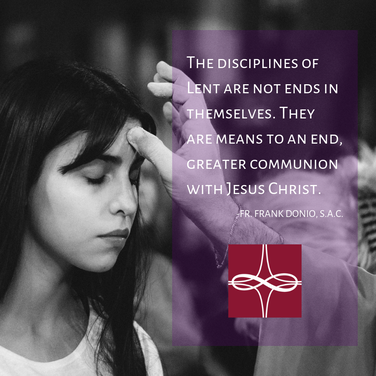
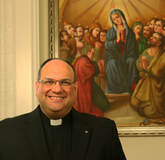
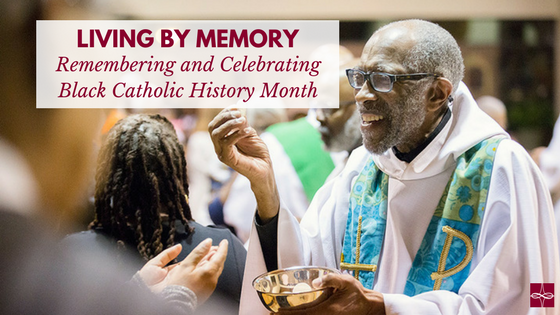





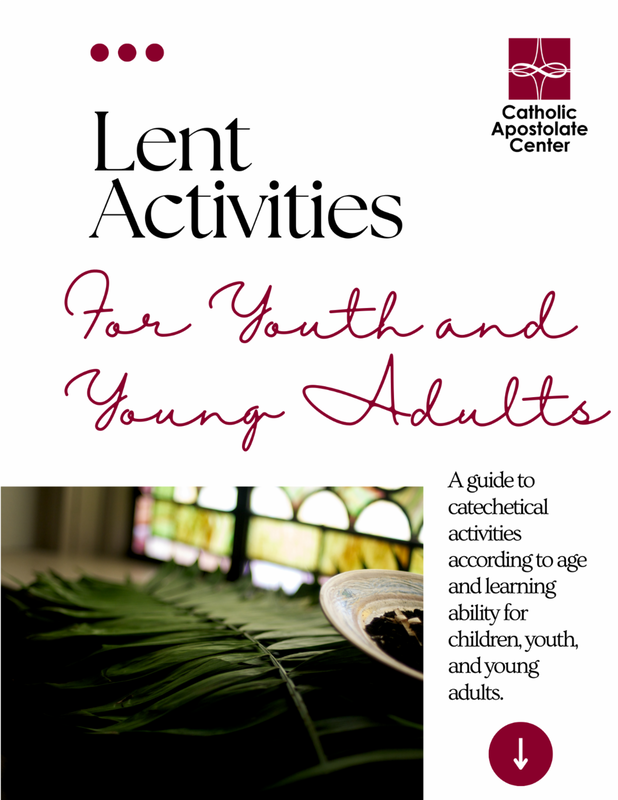
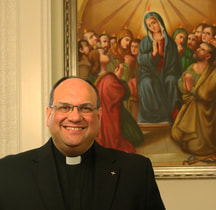
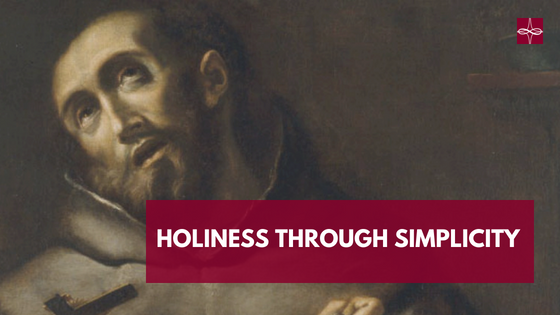

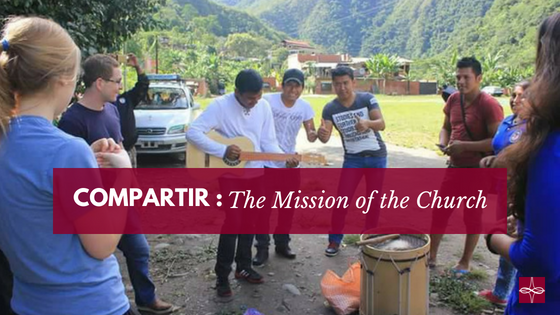
 RSS Feed
RSS Feed